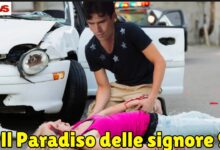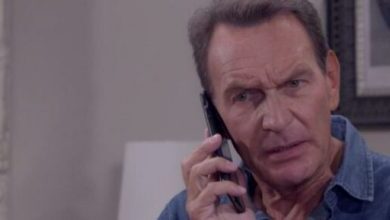How ‘Real Housewives’ Became The Thinking Woman’s Brain Rot
How ‘Real Housewives’ Became The Thinking Woman’s Brain Rot

Some 2.5 million people will watch any given season of RHOBH, according to stats released by TV network, Bravo. For context, that’s almost the same amount of people who watched the Succession finale, by which I mean to say that Real Housewives is a cultural juggernaut — even if it’s regularly relegated to the ‘guilty pleasure’ end of the television spectrum.
I was late to the Housewives game. I first started watching during the Covid-19 lockdowns, and quickly found myself suckered into the worlds of Beverly Hills, New York City, Atlanta, New Jersey, and Salt Lake City. The women were monstrous and brilliant, delusional and petty, superficial, ambitious, smart, and wickedly funny. They spent obscene amounts of money on terrible outfits, and bickered over the most tedious things.

I stand by the fact that some of the peak seasons of Housewives (seasons 3 and 4 of New York, seasons 5 and 6 of Beverly Hills, and basically seasons 1-9 of Atlanta spring to mind) stand up among the best television I have ever seen.
I mean this completely sincerely: Joe Gorga screaming for his father’s approval, Luann De Lesseps telling Alex McCord that “even Louis Vuitton makes mistakes”, the troubling masterpiece that is Scary Island — these are scenes of such vivid pathos and unparalleled comedic timing that they stand toe-to-toe with the best scenes in The Sopranos or Arrested Development.
There is a deep intelligence lingering just beneath the surface in Housewives, which is why, I think, many of the smartest people I know watch it.
I work in media, so it makes sense that a lot of my girlfriends love it, but I was recently at a friend’s birthday talking to a couple I know who are both PhDs in advanced mathematics. It turned out they both loved Real Housewives of Beverly Hills (they’re Lisa Rinna stans, naturally).
They’re not the only ones: Roxane Gay, Michelle Obama and Meryl Steep have all gone on the record as Housewives fans.
Some universities run courses on Housewives, and there have been multiple peer-reviewed academic papers published on the subject, like “The Real Housewives of Postfeminism: False Agency and the Internalisation of Patriarchy on Reality Television” from the University of Georgetown, or ‘The Mismanagement of Marital Disclosures in the Real Housewives of Beverly Hills’ from the University of Kentucky.
This year, Pulitzer Prize-winning cultural critic Emily Nussbaum wrote an entire book on reality TV, with multiple chapters dedicated to Housewives.
Why the obsession with The Real Housewives?
For one, Housewives deals in interpersonal dynamics that are often downright Shakespearean. Take Erika Jayne, the former cocktail waitress who married Hollywood’s most powerful lawyer, then spends millions of dollars to turn her dream of becoming a pop star into reality.
Just as she finds the global fame she has always dreamed of, a bombshell Los Angeles TImes’ report reveals her lawyer husband has been stealing millions of dollars from his clients, including children orphaned by tragic plane crashes. He awaits jail time, and she loses everything.
Or Bethenny Frankel, who starts her career as a private chef for New York’s ultra-wealthy, only to build a business empire so formidable, that she becomes wealthier than all the socialites she used to work for.
Or Sonja Morgan, once married to the JP Morgan heir, who, a decade after their divorce, has fallen into Grey Gardens-style disrepute, in denial that her marriage has ended, and drinking her life away in a crumbling Manhattan brownstone.
Any of these storylines would make for great pieces of literature, classic tales of false pretenses, delusions of grandeur, and the violent delights of watching the ultra-wealthy self-implode.

There’s strategy, too. The greatest joy of watching Housewives comes from the drama that is going on off-screen. The women are vying for screen time and the audiences’ love, often employing dirty tricks to beat off their rivals and emerge from the season unscathed. The best Housewives, like Lisa Vanderpump, serve as silent producers, engineering the seasons’ drama so that none of the heat falls on them (Kyle Richards has likened working with Vanderpump to “playing chess with Bobby Fischer”).
Housewives are outwitted, outlasted, and outplayed: newbies come on the scene and take down the established queens, unlikely alliances are formed leading to blindsides, liars are caught, shamed, and excommunicated. Everything, from marriages and infidelity, to careers and private health conditions, are considered fair game. In a recent documentary for Vice, former Real Housewives of New York City alum Aviva Drescher (best known for her iconic “leg toss” moment), likened working on the show to “stepping into a gladiatorial ring”. For many women I know, Housewives is the closest thing we have to the Superbowl.

Ultimately, I think the appeal of Housewives is its unromantic, surprisingly nuanced portrayal of female friendship. In the history of art—both high and low—very little time has been dedicated exclusively to female relationships. Female friendship is complicated. Little cuts can fester and grow into gaping wounds, small interactions can dramatically alter the power dynamics, the introduction of new people (or, in this case, the presence of a camera and audience) can turn decades-long friendships on their head.
There’s something deeply cathartic about watching women take seemingly trivial social wrongdoings — excluding someone from an event, making a subtle dig and then denying it, being passive-aggressive — and turn them into season-long arcs. In real life, these grievances rarely get aired, and we almost never scream and shout and air our anger and disappointment.
It’s for all these reasons that I consider myself a full-blown Bravo obsessive, and why I have started a new podcast, Goodbye Kyle, dedicated exclusively to these issues. My co-host, fellow journalist Kate Lancaster, and I recap new seasons, like the current runs of Real Housewives of Beverly Hills and Real Housewives of Salt Lake City, as well as interviewing fellow Bravo obsessives, and doing deep dives on iconic seasons, episodes, and moments from Housewives history.
The podcast exists on the premise that there is no detail too small to unpack and analyse: how does status anxiety lead seemingly normal people to do truly terrible things? What does the absurdist performance of extreme wealth tell us about our current, uber-capitalist culture? Can a marriage built on a large wealth and age differential ever be truly equal?
After all, the brainrot show for smart women deserves to be treated seriously.
Goodbye Kyle is available to download now.






